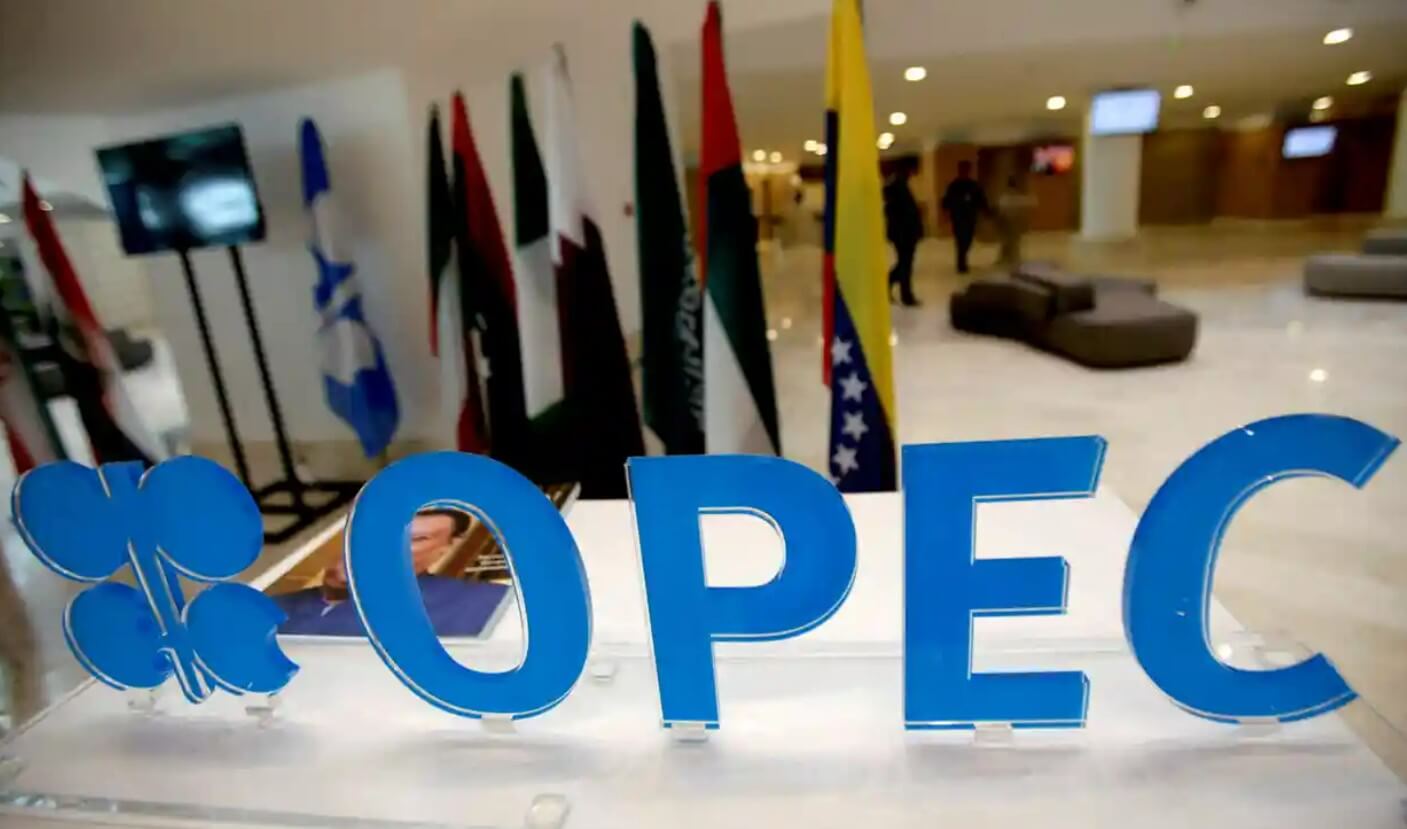On Monday, the Organization of the Petroleum Exporting Countries and allied oil-producing nations (OPEC+) agreed to cut oil production by 100,000 barrels per day (bpd) in October after noting the “adverse impact of volatility… and the need to support the market’s stability and its efficient functioning.”
Keeping in mind the “increased uncertainties,” OPEC+ said that a “continuous assessment of market conditions and a readiness to make immediate adjustments to production in different forms” is needed. “OPEC+ has the commitment, the flexibility, and the means within the existing mechanisms of the Declaration of Cooperation to deal with these challenges and provide guidance to the market,” it asserted in a statement, adding that the presiding country Saudi Arabia, can call for a meeting “anytime to address market developments, if necessary.”
BREAKING
— Rishikesh Kumar (@rishhikesh) September 5, 2022
Big Setback for the US and Europe
Saudi Arabia led OPEC+ agreed to cut oil production by 100,000 b/d in October.
Biden had visited Saudi Arabia in July to pursue the Kingdom to raise output in an attempt to put pressure on Russia.
Following the announcement, oil prices soared by 4% on Monday, with Brent at $96.77 and West Texas Intermediate (WTI) up 3.8% at $90.19. Oil prices have dropped by 20% from $123 per barrel in June amid concerns of a recession.
These fears are guided by concerns that China may reduce its oil imports after imposing a new round of strict COVID-19 lockdowns. Moreover, if the imminent nuclear deal between Iran and the world powers is finalised, it could bring in another one million bpd into the global market, which would further reduce prices and also strengthen the economy of Saudi Arabia’s biggest rival. Saudi Arabia thus could be using oil production as a bargaining chip with the United States (US), wherein it warns Washington of reduced oil production if the 2015 nuclear deal is revived.
And 52 days after US President Joe Biden went to Saudi Arabia, the kingdom has led OPEC+ into cutting oil production: quotas reduced by 100,000 b/d, and the cartel stands ready to meet again at short notice to reduce output further if needed | #OOTT
— Javier Blas (@JavierBlas) September 5, 2022
The OPEC+ announcement also closely follows the G7 announcing a price cap on Russian oil imports in a bid to reduce Russia’s “ability to fund” the Ukraine war while simultaneously stabilising global energy markets and minimising the “negative economic spillovers, especially on low and middle-income countries.”
In retaliation, Russia declared that it would not supply oil to any country or company that supports the price cap as “we will not work non-competitively.” Russian Deputy Prime Minister (PM) Alexander Novak noted that the “completely absurd” offer would “fully ruin the market.” He also revealed that India and China do not support the idea of a price cap.
In the most fraught foreign visit of his presidency to date, Biden made a pilgrimage to Saudi Arabia in July to encourage greater oil output. But now OPEC+ has decided to marginally cut crude output by 100,000 barrels a day, a decision that has led Brent crude price to climb 4%.
— Brahma Chellaney (@Chellaney) September 5, 2022
Prior to OPEC+’s agreement on Monday, Russia indicated that it was against trimming down oil production over concerns that it would send a message that the supply was outstripping the demand for crude. Furthermore, Russia did not want to lose its leverage while negotiating deals with Asian buyers, considering that the European Union (EU) has significantly reduced its dependence on Russian oil, while the US has implemented a blanket ban.
“Russia may be concerned about market assessments that point to a surplus,” chief commodities strategist at Canadian broker RBC Helima Croft remarked, adding, “It would weaken its hand with buyers just as it negotiates to deter them from adopting the price cap.”
Nonetheless, after the meeting, Novak said, “We see that global economic growth forecasts have been adjusted,” and admitted that the G7’s announcement to put a price cap had affected the situation. “We have a fairly flexible tool that can be used to increase or decrease production. We take a rational approach to balancing the market,” he stated.
.@PressSec statement on today's OPEC+ production cut: pic.twitter.com/uL85zTdb88
— Phil Mattingly (@Phil_Mattingly) September 5, 2022
Following US President Joe Biden’s visit to the Middle East in July, OPEC+ had agreed to increase the oil production by 100,000 bpd for September after emphasising the “dynamic and rapidly evolving oil market fundamentals.” The group was also particularly concerned that “insufficient investment into the upstream sector wi impact the availability of adequate supply in a timely manner to meet growing demand beyond 2023 from non-participating non-OPEC oil-producing countries, some OPEC Member Countries and participating non-OPEC oil-producing countries.”
On Monday, White House Press Secretary Karine Jean-Pierre asserted, “The President has taken action – including historic release of oil from US and global strategic reserves and working with allies on a price cap on Russian oil to ensure we maintain a global supply of oil, even as we punish [Russian President Vladimir] Putin for his action,” adding that Biden was “determined to continue to take every step necessary to shore up energy supplies and lower energy prices.”

